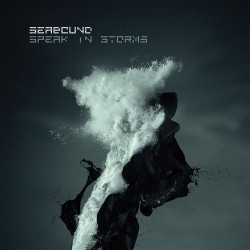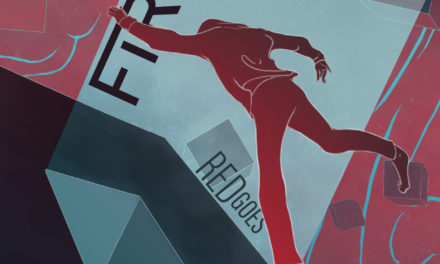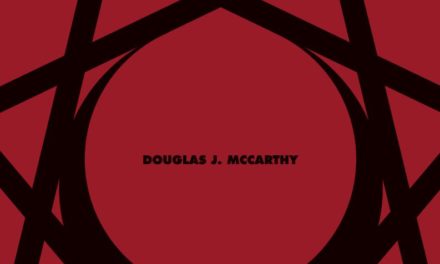Seabound
Speak In Storms
Dependent/Metropolis
It’s been a full eight years since there was a new Seabound LP, but the more casual listener (like yours truly) could be forgiven for thinking otherwise given that Frank Spinath’s voice has been a near constant presence in clubs and releases of a certain continental vibe. From Edge Of Dawn to Ghost & Writer, and guest spots with Liquid Divine, Minerve and plenty of others, Spinath’s smooth tones haven’t been far from our ears since 2006’s Double-Crosser. While we certainly wouldn’t complain about that, that regular proximity makes Speak In Storms‘ resolute focus on vocals, to the occasional detriment of all other elements, all the more puzzling.
The compositions on Spinath and Martin Vorbrodt’s fourth full LP together are uniformly well-arranged and developed as we’ve come to expect from the outfit, but around half of them are inobtrusive to the point of vanishing. We first heard “The Escape” nearly two years ago, but its hushed beats and spoken-sung vocal haven’t done that much to distinguish themselves in the interim. Similarly, the slinky “Liberty Rose” feels as though it’s perpetually looking for a way to escape the listener’s ears.
Tracks like these might have their roots in early tunes like 2001’s sedate “Point Break”, but unlike that tune, on much of Speak In Storms instrumentation almost apologetically fades into the background, fearful of distracting the listener from Spinath’s vocal performances. That’s perhaps not the worst idea when you have someone with as engaging a voice at the front of your project, but time and again Spinath’s shown that he can share the spotlight with more fleshed out songs, both in his side projects, as well as on countless older Seabound tracks which don’t sacrifice one member’s contributions for the sake of the other’s.
For all of this grumbling, listening to Speak In Storms has never been a chore over the past couple of weeks, and it definitely has some highlights. The slow burn of “Lair” and the downtempo chunkiness of “A Grown Man” work their way under the skin after multiple listens and “For Another Day” shows that a more minimal song structure doesn’t totally have to cede the floor. “Everything” is a classic futurepop jam that’s perfectly suited for freeway driving at sunset, and on “Nothing But Love” rolling beats and skimming synths are matched by a winning vocal paired with soaring pads. Aided by the deep yet airy production that’s always set Seabound apart from their peers, these select tracks are full-on winners.
Bringing some out of the gate classics but also hampered by half-measures, more than a striking return, Speak In Storms feels like business as usual for Seabound. If you’ve been happy enough with Spinath’s other work of late (as I have) that you hadn’t lost sleep over the timing of Seabound’s reemergence, then that’s just fine: Speak In Storms should provide some chill enjoyment and the odd club joint. While plenty of die-hards will be overjoyed just to have any new Seabound at hand, I wonder if a few of them might be setting their sights too high.







Well, I respectfully disagree.
There are lots of places where it’s clear the vocals aren’t the primary focus; we don’t even hear the singer until a minute or two into most of the tracks, instead building gentle atmospheric soundscapes to cradle the story Spinath tells through song. As an example, the “Requiem” remix of Black Feathers, from the deluxe edition, is a graceful blend of menacing instrument and soft, almost thoughtful vocals that bursts into orchestral swells that threaten to overpower the singer at the four-minute mark; I would think that suddenly dropping the melody would have the same dramatic effect, especially if the goal was to highlight the singer’s talent. Anyway, I never got the impression that the album was written to showcase the vocals — I thought they complimented each other in a mature, well-thought-out way.
More to the point, I noticed that threads of melody wove their way through the album in the same way that the lyrics had a consistent theme: take the melody from the 2-minute, 10 second mark of the track “For Life”, and compare it to the theme floating throughout “A Grown Man” (A ghost of that melody echoes in “Everything”; fast-forward to 3:56 and listen until 4:04). Like a novel, there are even allusions to other works: Listen to “A Grown Man” around 2:35 mark and see if you hear a sample from the very beginning of Project Pitchfork’s classic “Human Crossing”.
I’d definitely say this album represents two artists working together in harmony, is all. Even the bonus track “When She’s Hungry” reflects this in the way the staccato bass line and sample of a slide being pulled back in the beginning mirrors the lyrics “How many bullets do you have?”.
That all said, I’m certainly not the band’s biggest fan or anything, and I agree with your final verdict; I just think the judgment that the album is fearful of covering up the vocals is a bit off. Are you sure you don’t just have the treble turned all the way up?
Wow, this has to be the most in-depth reply a review’s ever received here! Thanks! I haven’t listened to the deluxe edition so I can’t speak to those tracks, but I’d agree with your second paragraph: it’s thoughtful and well-positioned material to be sure.